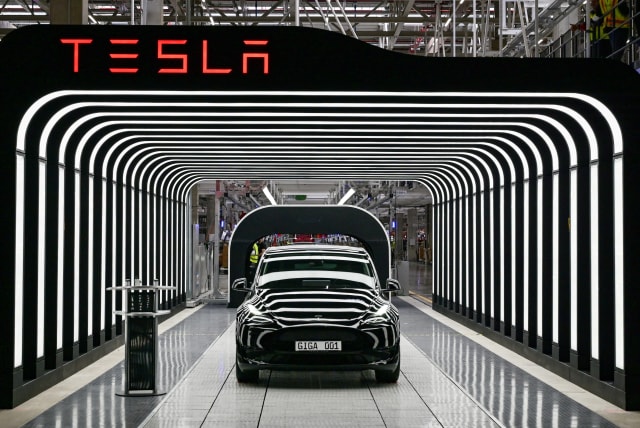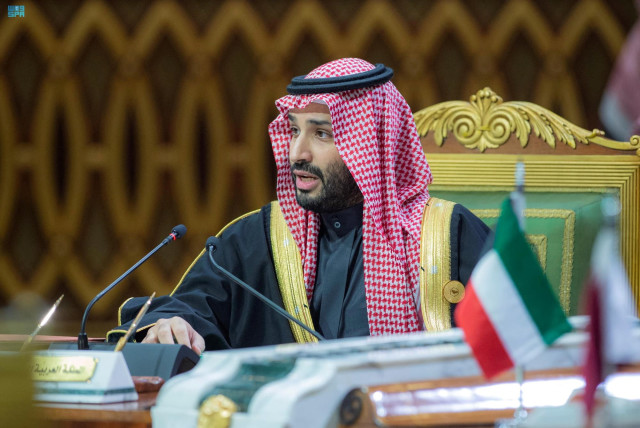Tesla, Saudi Arabia in early talks for EV factory - WSJ

Musk is also set to meet Israeli Prime Minister Benjamin Netanyahu in California on Monday.
Saudi Arabia is in early talks with U.S. electric automaker Tesla to set up a manufacturing facility in the kingdom, the Wall Street Journal reported on Monday, citing sources familiar with the matter.
The report comes just hours after Turkish President Tayyip Erdogan asked Tesla CEO Elon Musk to build a vehicle factory in Turkey, according to the country's communications directorate.
Musk is also set to meet Israeli Prime Minister Benjamin Netanyahu in California on Monday.
Musk took to the social media site X, formally Twitter, to deny the claims. "Yet another utterly false article from WSJ", Musk wrote over a screenshot of the WSJ report.
Saudi Arabia has been wooing Tesla with the right to purchase certain quantities of metals and minerals the company needs for its electric vehicles from countries, including the Democratic Republic of Congo, the report said.
The kingdom has been trying to shift its economy away from oil, while its sovereign wealth fund is the majority investor in Lucid Group LCID.O, one of the EV startups looking to challenge Tesla's dominance of the industry.
A bidding war
One of the proposals the kingdom is considering involves extending financing to commodities trader Trafigura for a flailing Congo cobalt and copper project, which could help provide a Tesla factory with supplies, the WSJ report said.
A Trafigura spokesperson said the trader was reviewing its options for the Mutoshi project in Congo amid rising costs and persistently low cobalt prices.
Tesla did not immediately respond to Reuters requests for comment, while Saudi Arabia's sovereign fund, the Public Investment Fund, declined to comment.
Musk said in May Tesla would probably pick a location for a new factory by the end of 2023. It currently has six factories and is building a seventh in Mexico in northern Nuevo Leon state.
Tesla has a goal to sell 20 million vehicles a year by 2030, up from around 1.3 million in 2022.
Jerusalem Post Store
`; document.getElementById("linkPremium").innerHTML = cont; var divWithLink = document.getElementById("premium-link"); if (divWithLink !== null && divWithLink !== 'undefined') { divWithLink.style.border = "solid 1px #cb0f3e"; divWithLink.style.textAlign = "center"; divWithLink.style.marginBottom = "15px"; divWithLink.style.marginTop = "15px"; divWithLink.style.width = "100%"; divWithLink.style.backgroundColor = "#122952"; divWithLink.style.color = "#ffffff"; divWithLink.style.lineHeight = "1.5"; } } (function (v, i) { });

